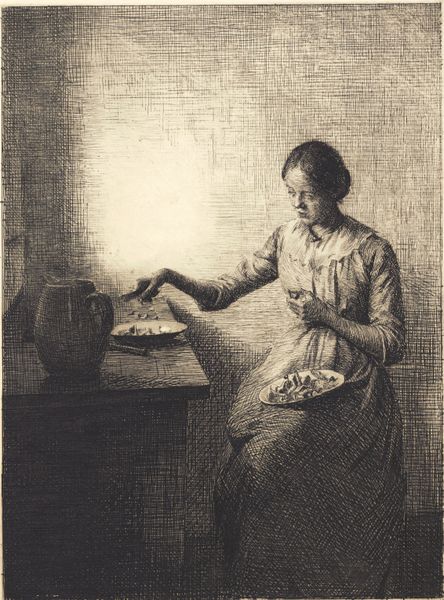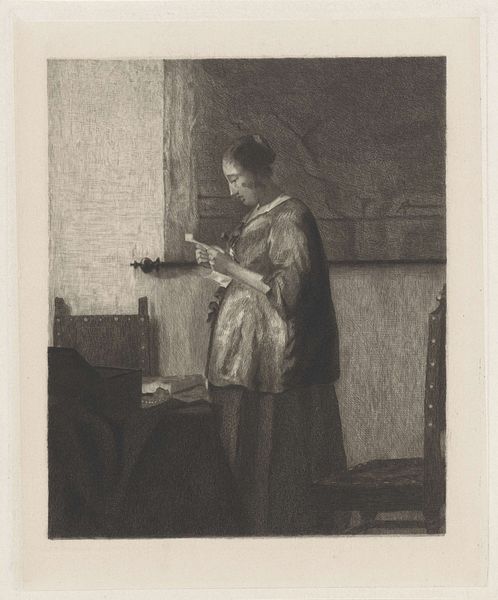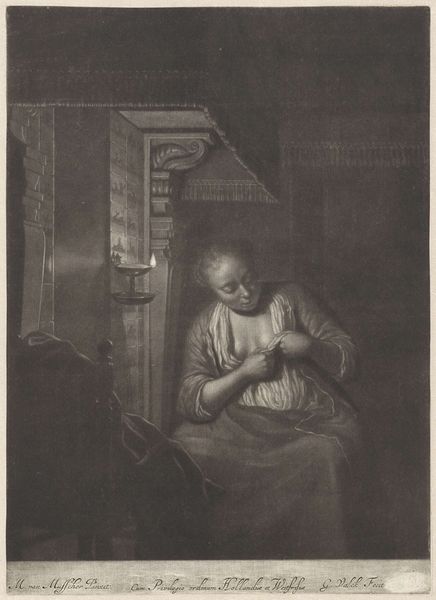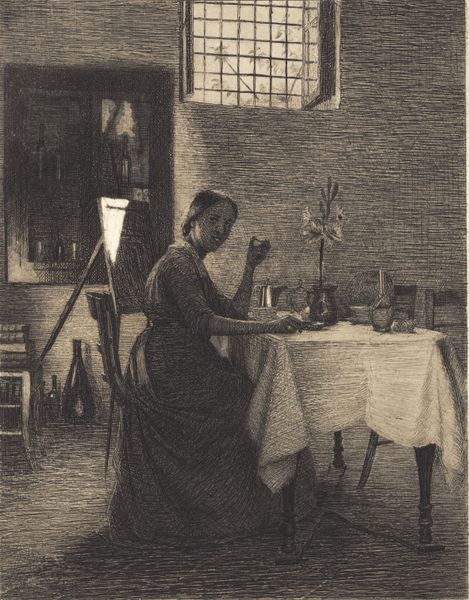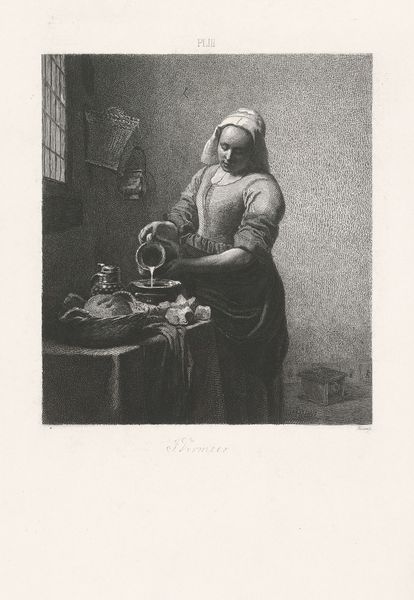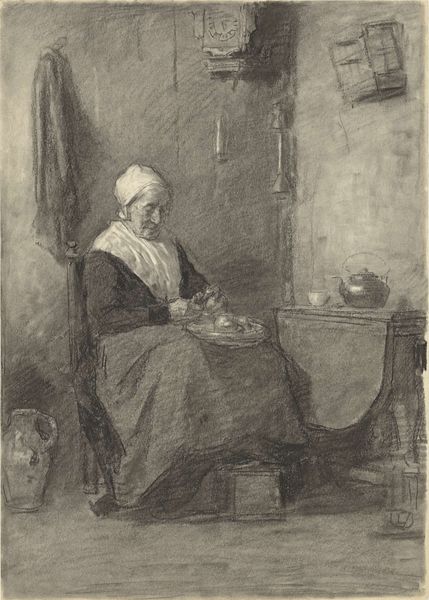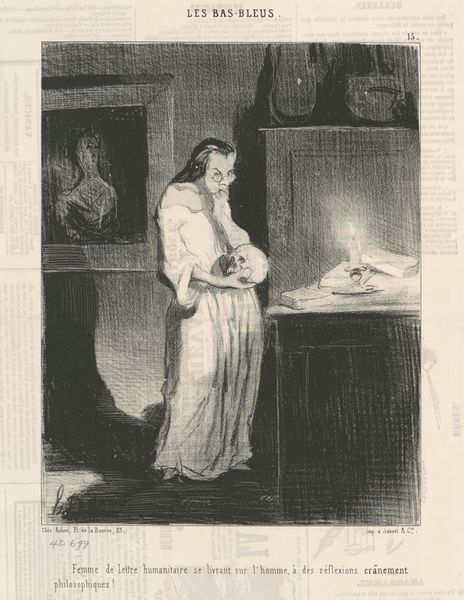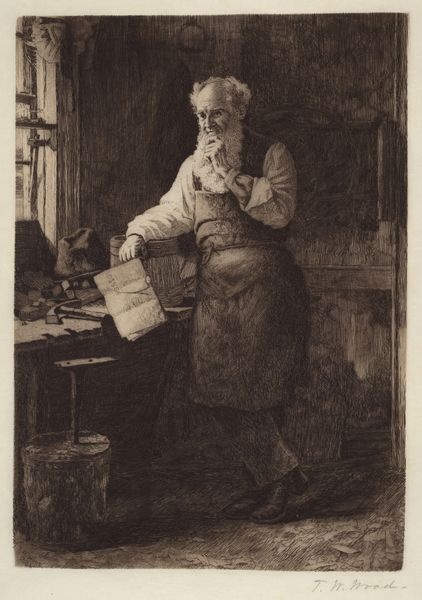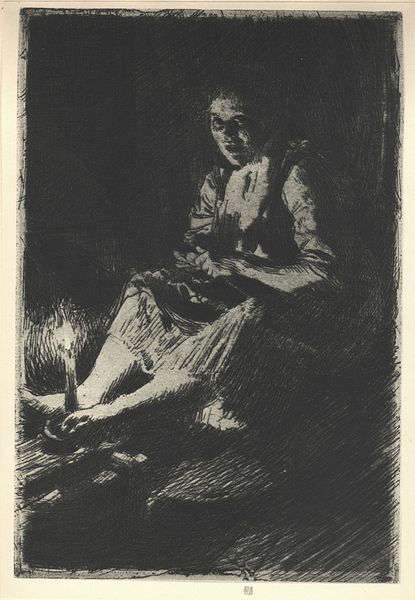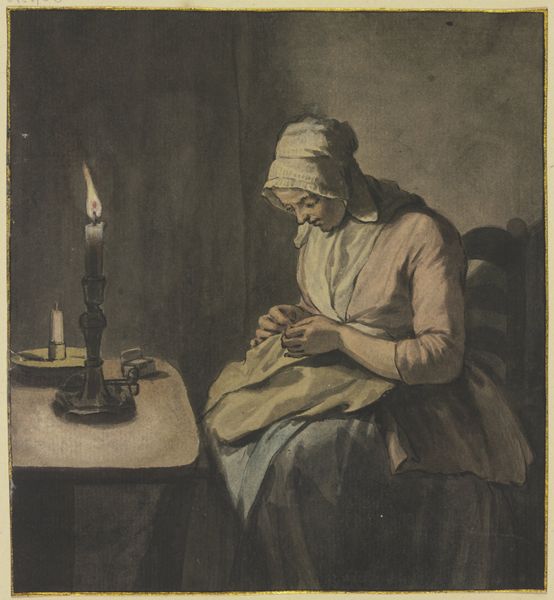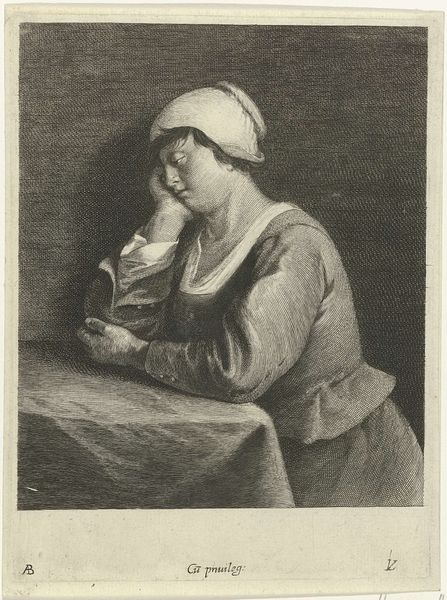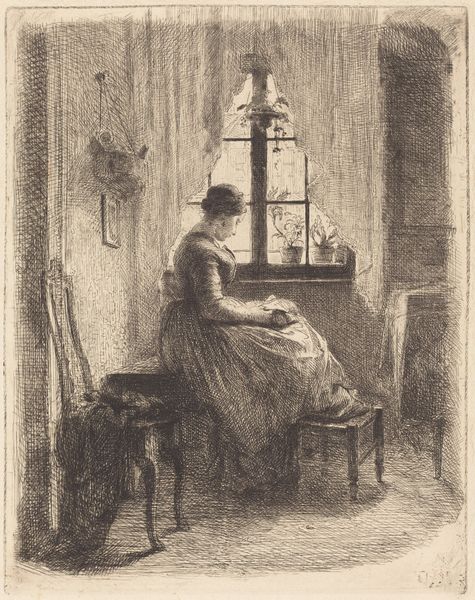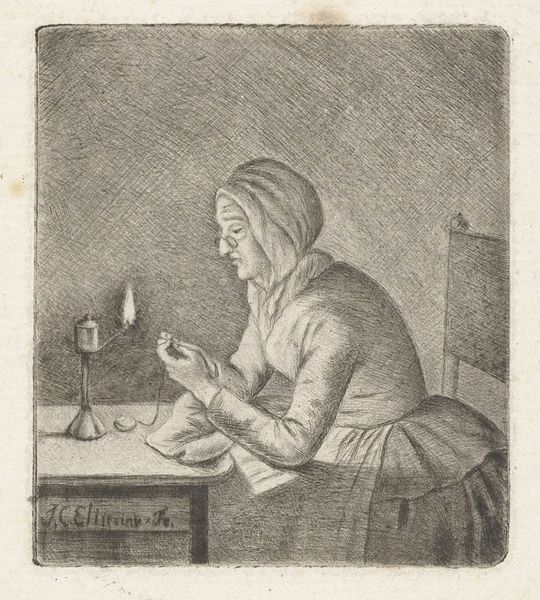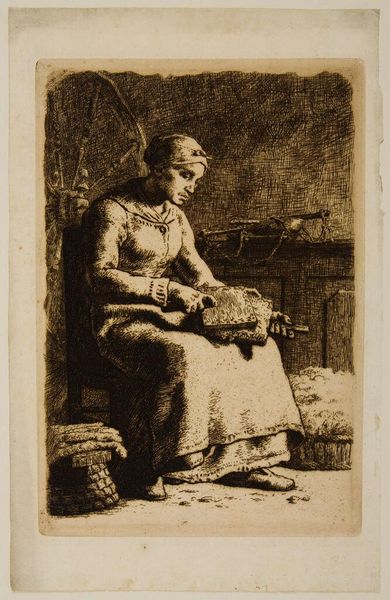
drawing, print, etching, ink
#
portrait
#
drawing
# print
#
etching
#
figuration
#
ink
#
intimism
#
genre-painting
Dimensions: 208 mm (height) x 149 mm (width) (plademaal)
Curator: This is “Canthareller,” an etching by Peter Ilsted from 1893, currently held at the SMK, Statens Museum for Kunst. What’s your first impression? Editor: Immediately, I'm struck by the solitude. It's an intimate scene, domestic, but there's a real sense of quiet labor, a weight to it. The muted palette amplifies that feeling. Curator: It absolutely does. The soft ink of the print lends itself well to an intimate mood. It seems he’s captured not just a genre scene, but the unspoken atmosphere of everyday life. You know, moments usually glossed over. The mundane elevating itself to something extraordinary. Editor: Right, but "mundane" has layers. Look at the careful depiction of the woman preparing what appear to be mushrooms – maybe that's the "Canthareller" – this evokes a sense of women's labor and connection to sustenance, deeply rooted in a particular time and place. Curator: Definitely, a celebration of that connection. But what draws me is Ilsted's rendering of light. See how it delicately caresses her face? Almost as if the light itself holds affection. Editor: I agree. And, how it creates a clear division of space, almost imposing its weight and limitations on her. That glow, in that setting… I wonder if it signals both the warmth of domesticity, but simultaneously, a sort of constraint, wouldn't you say? Curator: Oh, certainly, both prison and sanctuary—sometimes the two blur into one, don't they? This kind of ambiguity makes the artwork alive. Editor: The way he contrasts her focused attention on the task with the surrounding darkness… Is it just the dimness of the room or something more symbolic, perhaps suggesting a limited scope of opportunity? Curator: Good point, and, of course, it prompts us to think about the opportunities she might or might not have. Either way, I think this piece is very well made. Simple but also complex, which for me, is the magic. Editor: Well said, yes it resonates across time with those everyday acts of labor. I think reflecting on it from feminist theories really highlights these essential acts of preparation and the importance of giving those daily acts representation.
Comments
No comments
Be the first to comment and join the conversation on the ultimate creative platform.
